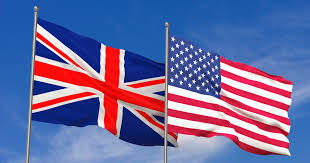Regional
How US, UK support double genocide theory

By refusing to use the correct terminology of “genocide against the Tutsi”, the US and the UK are firing up denial and revisionism which are considered the last stage of a genocide.
Despite
the unanimous January 26, 2018, vote by the
UN General Assembly which established very
April 7 as the Day of Reflection on the 1994 genocide against Tutsi in Rwanda, the US and UK persist in
peddling a double genocide theory, the idea that two genocides of equal
severity occurred in Rwanda in 1994.
Observers believe that the two countries' behaviour is not accidental. According to the diplomatic cables by the National Security Archives at Georges Washington University released ahead of the 20th anniversary of the 1994 genocide, “the US, Britain and the United Nations were explicitly warned that a "new bloodbath" was imminent in Rwanda. Rather than increasing the strength of the UN Assistance Mission for Rwanda (UNAMIR), the governments of John Major in Britain and Clinton in the US were considering rowing back the peacekeeping effort, according to the cables.
The cables revealed that when the
situation in Rwanda deteriorated and Belgium called for the reinforcement of
the blue helmets deployed in the country, not only were the US and the UK against
it, but they also considered withdrawing UNAMIR. That is what happened exactly
in April 1994 when the bloodshed started. Instead of bolstering the troops on
the ground to protect the Tutsi who were being slaughtered, the UK and the US
backed a resolution withdrawing most of it leaving behind an ineffective number.
Reluctance to account for Britain’s policies
Linda Melvern, a British investigative
journalist, has in the past observed that while the United Nations has shown
its willingness to uncover how and why it reacted the way it did, in the UK
there continues to be a reluctance to try to account for the latter's policies
toward Rwanda.
Neither the press nor Parliament has
shown any enthusiasm to scrutinize this part of history or to explain why the
UK, a permanent member of the UN Security Council, should have chosen to
influence events in the way it did. Britain, far from taking a back seat, was
instrumental in shaping the UN response to the crisis, and this leaves an
unanswered question.
Was the UK impotent or unwilling to
implement the 1948 UN Convention on the Prevention and Punishment of the Crime
of Genocide (UNCG), either to prevent the occurrence of genocide in Rwanda or,
once it began, to stop it from spreading? According to Melvern, in the UK,
"a country where secrecy pervades most aspects of government, the issue of
Rwanda is particularly sensitive."
"There are continuing attempts to
obscure individual responsibility in the decision-making process. There is even
a claim that, in the archives of the Foreign and Commonwealth Office (FCO) in
Whitehall, the paper trail on Rwanda, 1990–1994, has been weeded.”
Never
use the word “G”
In the US, the State Department, under
Amb Madeleine Albright, a Jew descendant herself, instructed its staff members
to never use the word “G” in their communication.
Using the word “genocide” would have had
serious implications because the US would have been compelled, under
international law, to intervene in Rwanda to stop the extermination of the
Tutsi. Watching passively suited them despite numerous calls from the
international community to do something to halt the carnage.
As the saying goes, the past is sometimes
a prologue. On April 20, 2020, in a resolution adopted by consensus in the UN
General Assembly, the wording to enshrine an international day to commemorate
the victims was changed. The International Day of Reflection became more
specific, and April 7 became a day to commemorate the genocide “against the Tutsi.” However, afterwards,
the UK and the US expressed reservations in letters to the president of the
General Assembly.
Kelly Craft, the then US Ambassador at the UN,
complained that, the wording “genocide against the Tutsi” “failed to capture
the violence against “other groups” and left “an incomplete picture of this
dark part of history."
According to the US government, many Hutu
and others were killed too, including those murdered for their opposition to
the atrocities that were being committed.
The US, just like the perpetrators of the
genocide against the Tutsi, claims that a second genocide against the Hutu
happened and that there was an international cover-up. This represents one of
the oldest claims in the Hutu Power disinformation handbook.
To this day, the Hutu Power movement
still peddles lies that each “side” was as murderous as the
other and that the Rwandan Patriotic Front (RPF) had slaughtered “hundreds of
thousands of Hutu”.
Let's not forget that it is actually the
RPF that stopped the genocide.
US,
UK firing up last stage of genocide
On April 7, 2021, as Rwandans and friends
of Rwanda commemorated the 1994 Genocide against the Tutsi, US and UK officials
again engaged in genocide denial by issuing shameful statements in which the
victims and the historical truth of what happened 27 years ago were erased.
By refusing to use the correct terminology of “genocide against the Tutsi”, the US and the UK are firing up denial and revisionism which are considered the last stage of a genocide.
It is true that some Hutu were killed but there was no plan to exterminate them. The six million Jews killed by the Nazis during the Holocaust are never mixed up with millions of other nationalities who perished during the Second World War. The same applies to the genocide against the Tutsi because only the latter were the target of extermination. The US and the UK should come clean.

